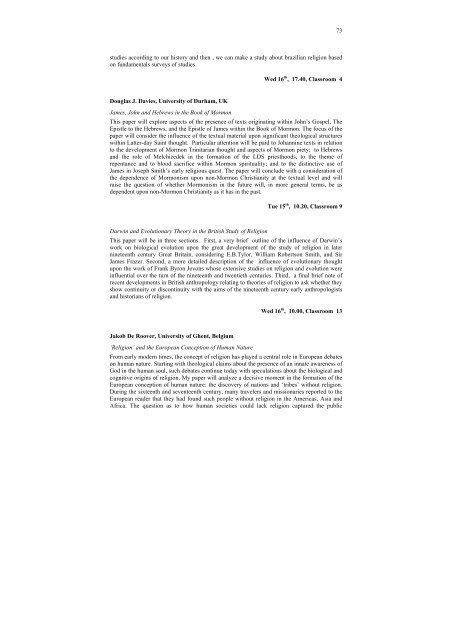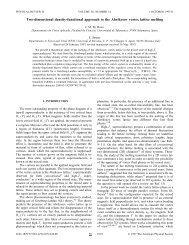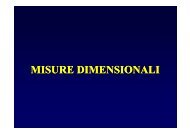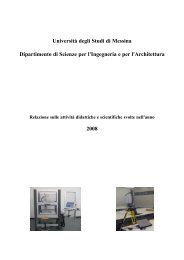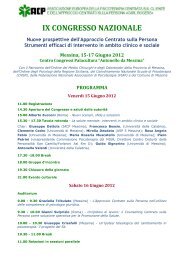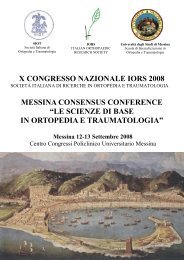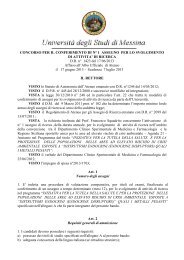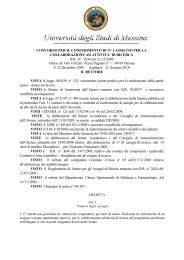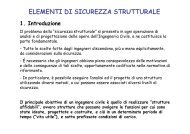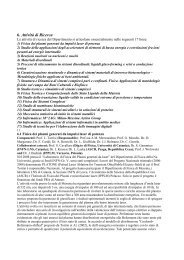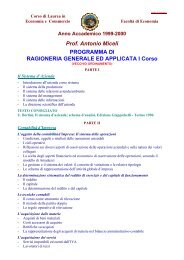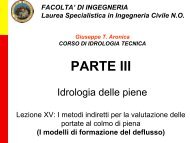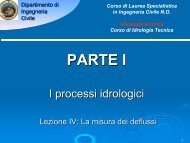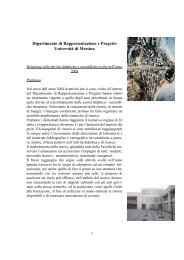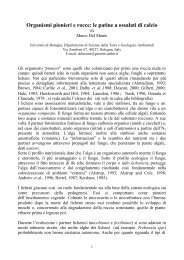PROGRAMME AND ABSTRACTS - Università degli Studi di Messina
PROGRAMME AND ABSTRACTS - Università degli Studi di Messina
PROGRAMME AND ABSTRACTS - Università degli Studi di Messina
Create successful ePaper yourself
Turn your PDF publications into a flip-book with our unique Google optimized e-Paper software.
stu<strong>di</strong>es accor<strong>di</strong>ng to our history and then , we can make a study about brazilian religion based<br />
on fundamentals surveys of stu<strong>di</strong>es.<br />
Douglas J. Davies, University of Durham, UK<br />
James, John and Hebrews in the Book of Mormon<br />
73<br />
Wed 16 th , 17.40, Classroom 4<br />
This paper will explore aspects of the presence of texts originating within John’s Gospel, The<br />
Epistle to the Hebrews, and the Epistle of James within the Book of Mormon. The focus of the<br />
paper will consider the influence of the textual material upon significant theological structures<br />
within Latter-day Saint thought. Particular attention will be paid to Johannine texts in relation<br />
to the development of Mormon Trinitarian thought and aspects of Mormon piety; to Hebrews<br />
and the role of Melchizedek in the formation of the LDS priesthoods, to the theme of<br />
repentance and to blood sacrifice within Mormon spirituality; and to the <strong>di</strong>stinctive use of<br />
James in Joseph Smith’s early religious quest. The paper will conclude with a consideration of<br />
the dependence of Mormonism upon non-Mormon Christianity at the textual level and will<br />
raise the question of whether Mormonism in the future will, in more general terms, be as<br />
dependent upon non-Mormon Christianity as it has in the past.<br />
Darwin and Evolutionary Theory in the British Study of Religion<br />
Tue 15 th , 10.20, Classroom 9<br />
This paper will be in three sections. First, a very brief outline of the influence of Darwin’s<br />
work on biological evolution upon the great development of the study of religion in later<br />
nineteenth century Great Britain, considering E.B.Tylor, William Robertson Smith, and Sir<br />
James Frazer. Second, a more detailed description of the influence of evolutionary thought<br />
upon the work of Frank Byron Jevons whose extensive stu<strong>di</strong>es on religion and evolution were<br />
influential over the turn of the nineteenth and twentieth centuries. Third, a final brief note of<br />
recent developments in British anthropology relating to theories of religion to ask whether they<br />
show continuity or <strong>di</strong>scontinuity with the aims of the nineteenth century early anthropologists<br />
and historians of religion.<br />
Jakob De Roover, University of Ghent, Belgium<br />
‘Religion’ and the European Conception of Human Nature<br />
Wed 16 th , 10.00, Classroom 13<br />
From early modern times, the concept of religion has played a central role in European debates<br />
on human nature. Starting with theological claims about the presence of an innate awareness of<br />
God in the human soul, such debates continue today with speculations about the biological and<br />
cognitive origins of religion. My paper will analyze a decisive moment in the formation of the<br />
European conception of human nature: the <strong>di</strong>scovery of nations and ‘tribes’ without religion.<br />
During the sixteenth and seventeenth century, many travelers and missionaries reported to the<br />
European reader that they had found such people without religion in the Americas, Asia and<br />
Africa. The question as to how human societies could lack religion captured the public


